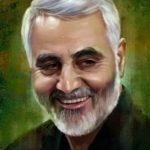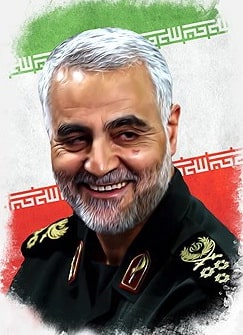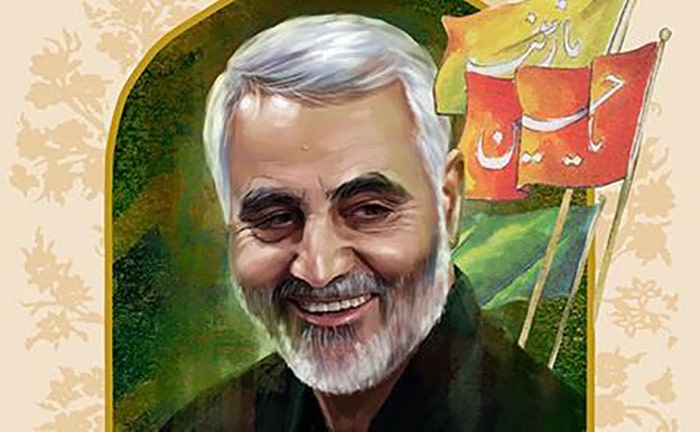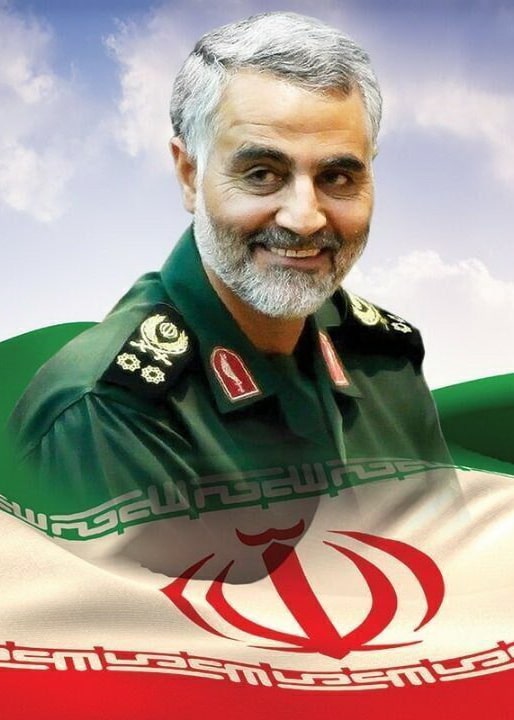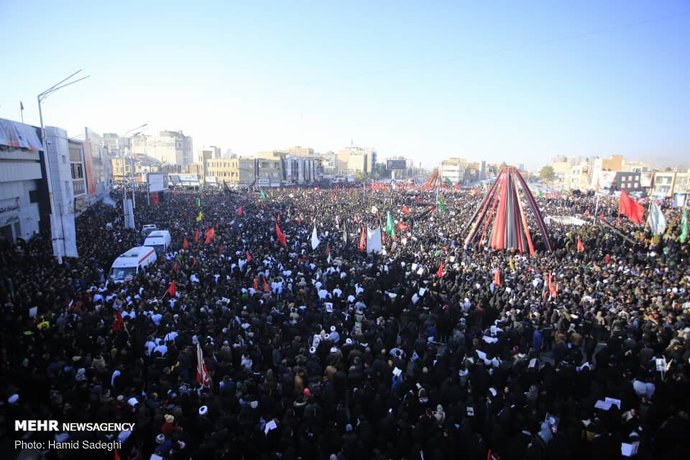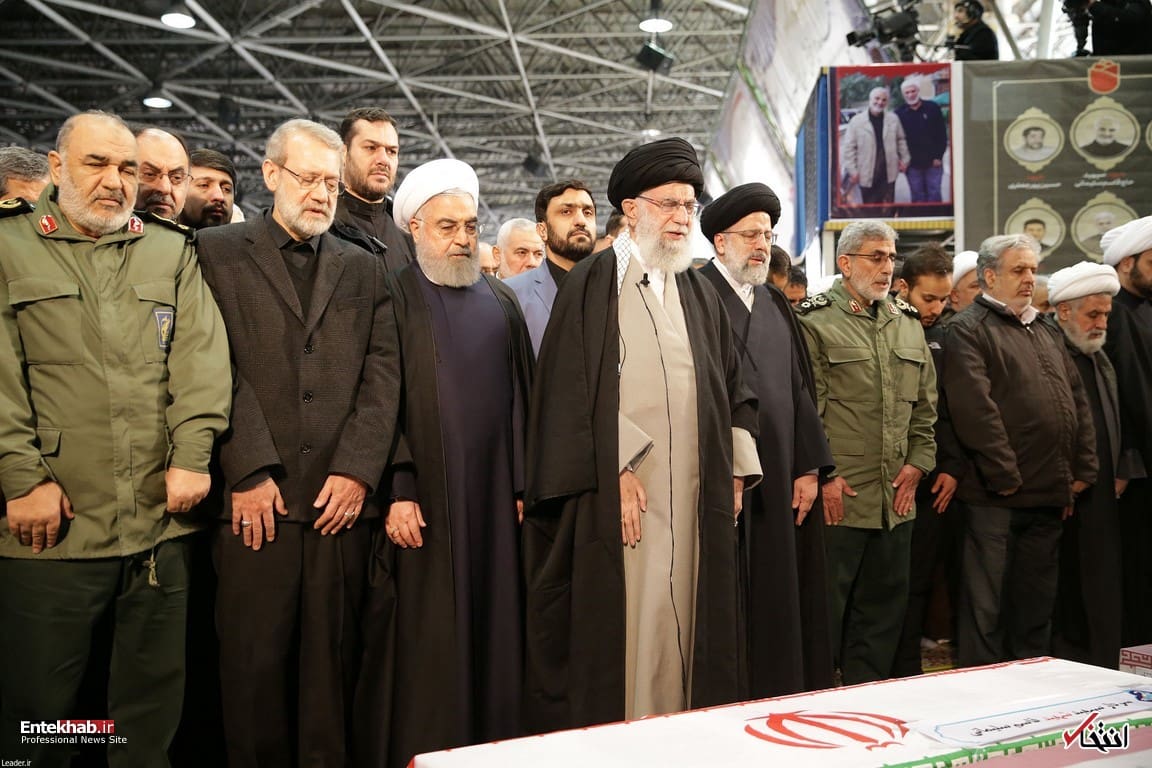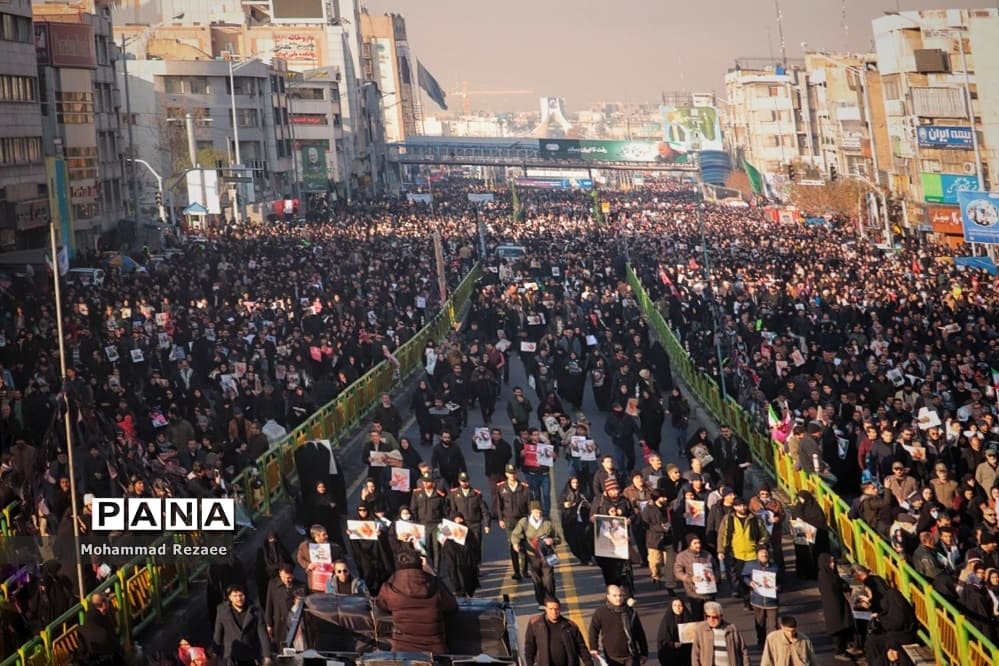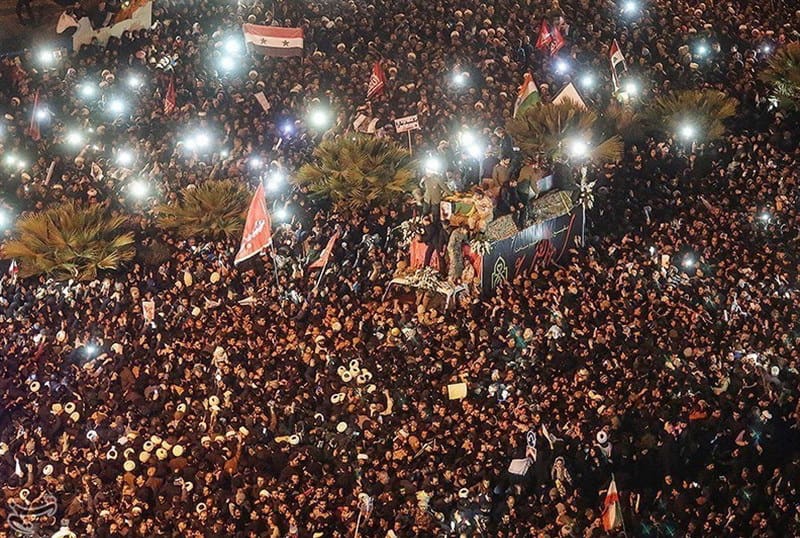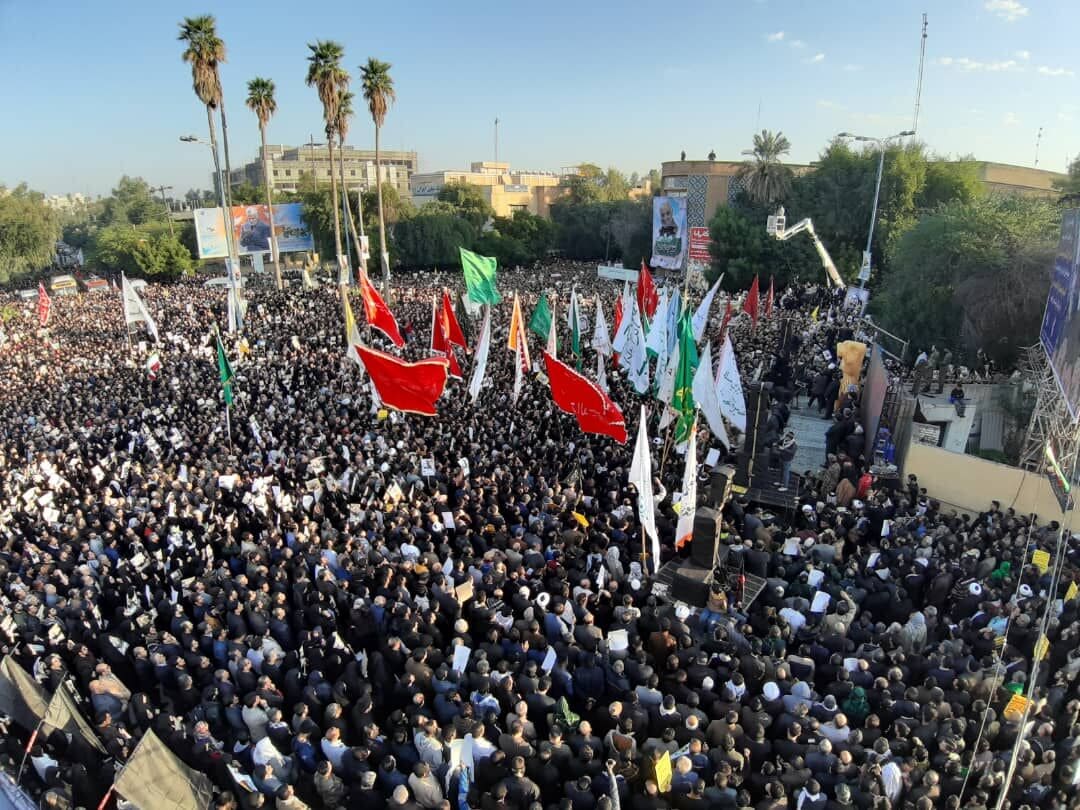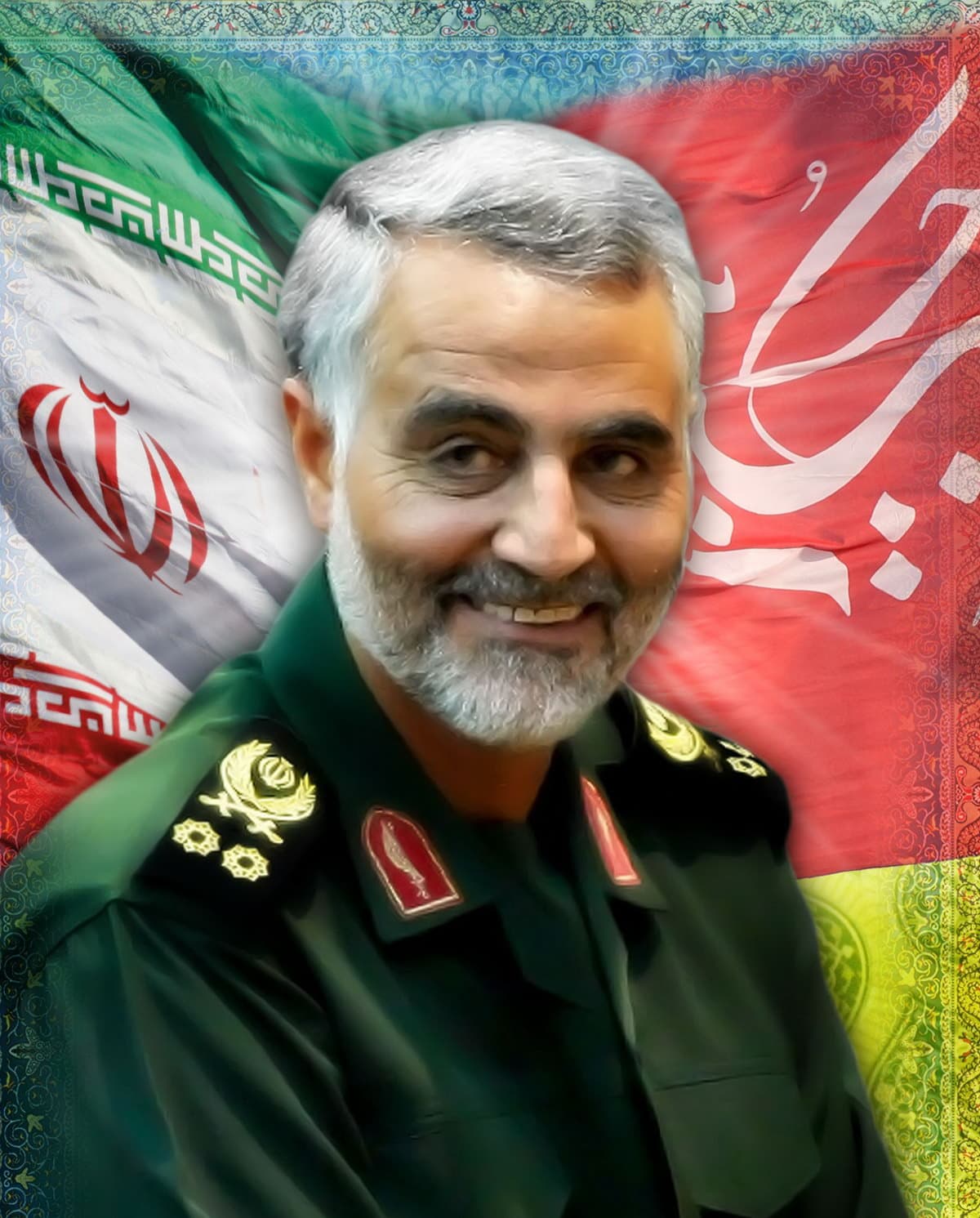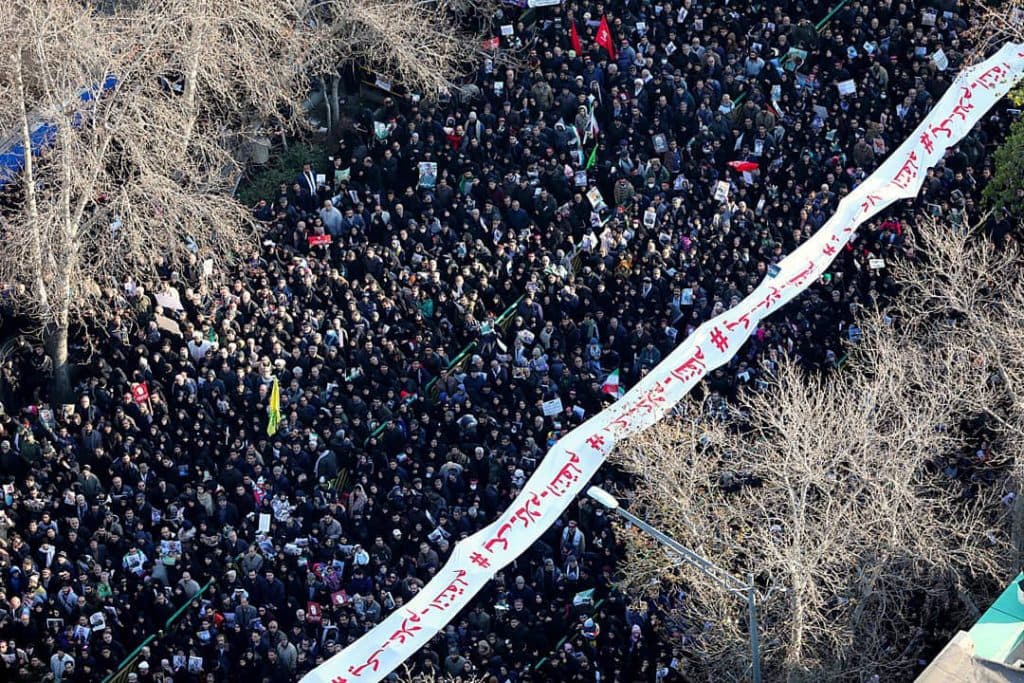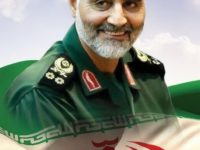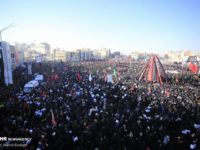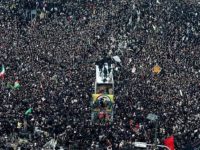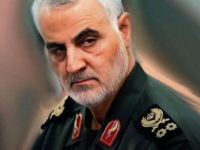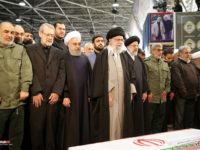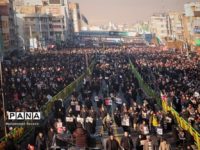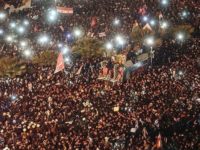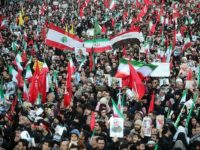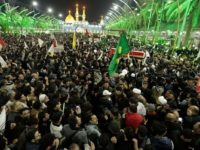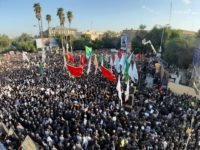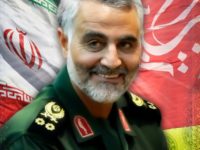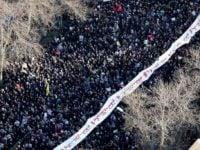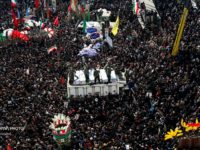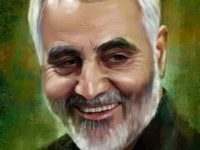Qasem Soleimani
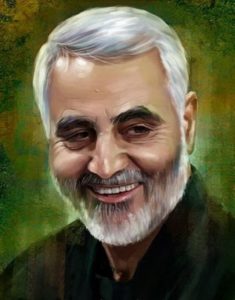 General Qasem Soleimani he was born in Iran on March 11, 1957 in a village in the region Kerman. During the Islamic revolution he met a theologian named Reza Kamyab and, according to his brother Sohrab Soleimani, he was one of the main coordinators of the demonstrations against the Shah regime in Kerman[1].
General Qasem Soleimani he was born in Iran on March 11, 1957 in a village in the region Kerman. During the Islamic revolution he met a theologian named Reza Kamyab and, according to his brother Sohrab Soleimani, he was one of the main coordinators of the demonstrations against the Shah regime in Kerman[1].
The Personality of General Soleimani
Courageous and heedless of the danger, he was gifted with exceptional skills as a general in recognizing the enemy and in strategic operations against him. Charismatic personality, humble behavior, with his profound speech he attracted people and was the general most loved by his soldiers and at the same time faithful and submissive to the Supreme Guide.
The period of the Iran-Iraq war
#Qasem_Soleimani, after the Islamic revolution of Iran, in 1981 he became a member of the Pasdaran army (Guardians of the Revolution) and concurrently, with the outbreak of the Iran-Iraq war, he instructed some squadrons in Kerman and sent them to the fronts of war.
He was for a period in charge of commanding the Eastern Azerbaijan Army. In 1982 by order of Mohsen Rezai, head of the Pasdaran, he was chosen as commander of division 41 Sar-Allah.
Command of the Al-Quds forces
In 2001 Soleimani was entrusted by the Supreme Leader with the command of the Al-Quds forces (special forces and intelligence units of the Islamic Revolutionary Guard Corps of Iran). During his tenure, he played a key role in strengthening the Lebanese party Hezballah and the Palestinian fighting groups of which an evident sign can be found in the numerous battles including the 33-day war between Hezbollah and the Zionist regime and the victory of Palestinian fighters in the 22-day war in Gaza against the army of the Zionist regime.
Soleimani in Iraq created the Iraqi popular mobilization unit and national defensive forces in Syria. The local and foreign media, for his role of strategic command of the area and of fighting enemies, have used various appellations to describe him as "the commander of the shadow", "the international general", "the ghost commander", " the mysterious commander "," the enemy's nightmare "," the malek-ashtar of the time "(known commander of Imam Ali) and" general Haj Qasem "[2].
Presence in Syria and fight against #Isis
With the emergence of ISIS in #Siria, the cities and villages of this country, with the exception of Damascus (the capital) and some areas such as "Laodicea" and "Tartus", fell one after the other, passing under the control of the 'Isis. In a short time, more than half of Syria was dominated by ISIS which, in expanding its territory, crossed the borders of Syria entering Iraq.
In a short time Mosul fell, and ISIS advanced on Iraqi territory to Falluja, Tikrit and Samarra, even reaching the borders with Iran; in this advance the cities of Damascus, Erbil and Baghdad repeatedly suffered attacks that provoked violent massacres.
During this time, the # Al-Quds forces, led by General Soleimani and all the resistance militias in the area, with consultative and field measures, avoided the total surrender of Syria and Iraq in the hands of this terrorist group.
The Iraqi authorities and the Kurdish people of this country, together with the Syrian authorities, have repeatedly admitted the role of the Islamic Republic of Iran and General Soleimani in preventing the fall of Erbil, Baghdad and #Damasco.
In the formation and command of the "resistance front", consisting of the Iranian Pasdaran, the Lebanese #Hezbollah, the "Fatimid" Afghan fighters, the "Zeinbiun" Pakistanis and the "Heydariun" and "Hashd-alsha'bi" Iraqis, the the role of this Iranian martyr general was incomparable.
The images of the presence on the battlefield of this middle-aged man, in dusty and modest clothes, without any military rank, in the midst and alongside the resistance soldiers of different nationalities, are memorable.
These testify to the presence of General Soleimani at the forefront in the fight against Isis, their repetition contributed to the end of this group and with the initiatives by the resistance forces the cards were changed on the table, starting the losing streak of Isis on the battlefields.[3]
On 21 November 2017, General Qasem Soleimani, commander of the Al-Quds forces, in a letter announced to the head of the Islamic Republic of Iran the official defeat of the government of the terrorist group Isis. This important event, with the lowering of the ISIS flag in the city of "Abu Kamal" in Syria, confirmed its definitive end.
During the last days of summer of the same year, during the funeral of a resistance front commander, Morteza Hosseinpur, in the martyrs' cemetery of Shalman in Langerud, Soleimani had declared that this would happen.[4] (4)
The new Middle East, the great plan of the United States of America
The aim and the ambitious program of the dominant regime, and in particular of the American government in the west of Asia, (called by the latter Middle East) concerned the project of a new Middle East. The main axis of it was Syria, Lebanon and Iraq and the aim was to form governments in these areas that were subject to the United States of America, so that they would not pose a threat to them or even to the occupying regime of Qods.
This influence should have manifested itself both externally and in the form of internal and real domination. America has pursued this ambitious goal by destabilizing the area. The spread of insecurity, the weakening of independent governments, destabilization, support for takfirite and radical terrorism, were among the measures to favor the interests of the United States of America in the region, but this project thanks to Soleimani's strategy has led to the defeat of the Americans.
Point of view of some well-known personalities regarding the role of Soleimani in the fight against terrorism
The role of General Soleimani in the annihilation of ISIS is undeniable. Long before the appearance of this terrorist group, he was the subject of analysis by the American and Western media, but his key role in defeating ISIS for the international media and for the Western and American authorities was more marked.
The Iranian general in a certain period appeared with the name of "eternal enemy" on the cover of the American magazine "Newsweek" and in the explanation of this title it was written: "before he fought America, now he is annihilating Isis ".
"McCrystal", former commander of the American special operations in Iraq, regarding the role of Soleimani says: "with the appearance of an evil and satanic phenomenon named Isis, now Soleimani plays the part of the spotless knight in front of it". McCrystal adds: “In my opinion, Soleimani played a vital role in the salvation of the Assad regime. It was almost impossible for Assad to have trusted himself and in some cases had the ability to resist the storm of two or three years; in reality, it appears that his government is disintegrating ".
"Ryan Crocker", former American ambassador to Iraq and also to the Middle East, regarding the role of Soleimani in the fight against ISIS says: "Bashar Assad's government was really faltering in some periods. Al-Quds forces and some Iranian militias have lifted him up. "
"Scott Bennett", American analyst and former officer of the psychological warfare of the American army, expressed in an interview on the role of the commander of the Al-Quds forces in the fight against terrorism: "Soleimani in his special military operations for the fight against ISIS violence and bloodthirsty terrorism he acted in cold blood showing the world that Iran is against ISIS morality on all fronts and the world gradually understood it; Iran is not only not on the side of ISIS, but is the main country that has stopped its advance. "
"John Maguire", a former CIA officer, about the battle of "Al-Qusayr" in Syria that led to the Syrian army recapturing this strategic city, said: "It was General Soleimani who led directly the operations and the architect of that great victory ".
Soleimani's humility among co-belligerents and resistance soldiers is another theme that has attracted the attention of the American authorities and experts in the battles against Isis. Maguire asserts: "that 25-year-old man of low social class who is fighting without a bulletproof vest in a pseudo-military group, how is it possible that he does not have a purpose and a good intention when he sees his boss who has the age of your grandfather wearing a shirt walking in the battlefields and amidst the shooting of bullets? This is a message of encouragement for that soldier, namely that the fear in the depths of that man does not exist and we must be like that too ”.
"Maguire" then admits: "I really believe that people like Soleimani perceive that they are writing their own destiny, and even if they are killed, it doesn't matter. They have a very different point of view in this regard than us Americans for example and are convinced that they are fulfilling a divine mission. "
At the summit of the American authorities, "Barack Obama", former American president, in a meeting with Haydar al'Abadi, prime minister of Iraq in the year 2014, regarding General Soleimani states: "He is my enemy but I for him I have a particular respect. "
Even Donald Trump, the current American president, who had enrolled Soleimani and his army in the list of terrorist groups and who organized his assassination, could not deny his commitment to terrorism and on one occasion said: " Iranians despise Isis even more than we do. "[5]
Martyrdom of Soleimani
Following the assassination of Qasem Soleimani on Friday 3 January 2020 by the American army in Iraq, Iran feels immersed in the deepest mourning and the reaction of the people to his assassination has led to pouring into the streets and condemning this act terrorist also called for strong feedback from the perpetrators of this crime.[6]
[1] https://www.hedayatmizan.ir/site/content/17781/
[2] https://www.khabaronline.ir/news/1338199/
[3] http://hadese24.ir/news/28286
[4] https://www.yjc.ir/fa/news/7145493/
[5] http://hadese24.ir/news/28286
[6] https://www.tasnimnews.com/fa/news/1398/10/13/2173669/

